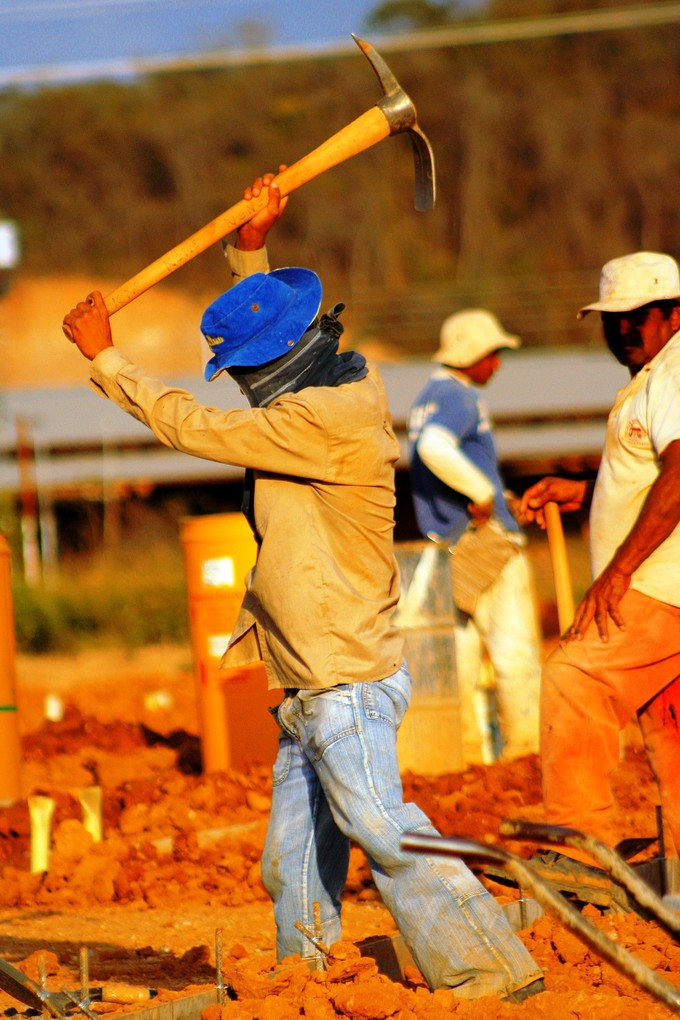One step closer to replacing COSATU?
A new labour federation hopes to trigger a workers’ party
Talk of an as yet ill-defined socialism is emerging strongly on the fringes of mainstream politics, both here and in Britain and the United States. At the same time, in the name of populism, we have the likes of Donald Trump in the US and the more virulent Golden Dawn of Greece, the Freedom Party of Austria and others touting various brands of bigotry and nationalism.
Against this background, it seems appropriate to paraphrase the opening lines of the 1848 Communist Manifesto: A spectre is haunting the world — the spectre of barbarism and misery. It has arisen in the minds of millions because of the ongoing economic crisis, the increase in global joblessness and the insecurity and fear this produces.
It is a time when those in political control, along with big business and their acolytes, continue to announce that “we are all in this together”. We are indeed. But what we are in and who put us there is the real question.
It is a question that has given rise to an often desperate search, mainly by working people, who are hardest hit by the crisis, for alternatives to the present order where none, prominently, exist. This vast army of the disillusioned has the potential to bring about change and is therefore the target of any variety of charlatans in political and religious garb, wooing working people and the labour movement.
On the religious front, the concentration is on that significant minority who have become hopelessly demoralised and blindly seek solace in the promise of a better life hereafter. They are prey for those often self-ordained priests and pastors offering what are effectively promised tickets to heaven or what Joe Hill in 1911 referred to as “pie in the sky, by and by”.
However, there is also a growing force in many areas that is starting, in an organised way, to demand real change to a system that seems in danger of destroying the planet itself. This demand, in terms of co-operation, caring and sharing was, in recent history, the province of the labour movement and its supporters.
That all went by the board in the boom years following World War 2, when very few heeded the lessons of past booms and slumps and the dire warnings of academics such as Norbert Wiener. He was the man who foretold that robotics could result in the “industrial revolution of unmitigated cruelty” that we now seem to be on the cusp of experiencing.
Significantly, majority trade union groups still continue to support the existing order in the face of divisions usually brought about by disgruntled rank and file members. Arguably, they do so because the bureaucratic leaderships are almost wholly enmeshed with the existing system.
As a result, there is growing disgruntlement and this is particularly evident in South Africa where, in Johannesburg last week representatives of 30 or more unions met as a steering committee to finalise details for the formation of a politically independent and radical labour federation.
At the same time, the registration of a National Trade Union Congress was gazetted by the Department of Labour. It was registered by Stephens Msiza, a former bodyguard of Economic Freedom Fighters (EFF) leader Julius Malema. It was formed by EFF members last year, with 153 members.
The steering committee is a very much more serious project, not only because of the number of mainly smaller unions involved, but because it is headed by the more than 330,000-strong National Union of Metalworkers (Numsa). It is planned that the proposed new federation, although politically unaffiliated, will trigger the formation of a “workers’ party” that will articulate policies based on “worker demands”.
In many ways, this is a variation on a theme that has arisen in Britain and the US where parties that were rooted in the labour movement now have serious movements within them that are pressing for a return to earlier, co-operative values. In Britain, there is the recently elected leader of the Labour Party, Jeremy Corbyn, and in the US, the crowdfunded Democratic Party presidential challenger, Bernie Sanders.
Both have been in politics for decades, describe themselves as socialists and, especially in the case of Corbyn, have records of campaigning for peace, against racism and nuclear weapons as well as military interventions. Throughout what has been described as the “greed is good” years, they were always on the margins of politics. Now they are decidedly to the forefront.
Will the weight of Labour Party bureaucracy force Corbyn to compromise and will Sanders, ever loyal to the Democratic Party, end up throwing his support behind Hillary Clinton? In both cases, the waves of change they represent may well dissipate in much the same way as seems to be happening with Syrizia in Greece and Podemos in Spain.
Only a truly democratic organisation with a clear programme of action and co-operative policies to match may be able to provide hope of an alternative way forward that is not authoritarian and brutal. On the other hand, we can continue to muddle along what is an increasingly rocky path to devastation.
Views expressed are not necessarily those of GroundUp.
Support independent journalism
Donate using Payfast

Don't miss out on the latest news
We respect your privacy, and promise we won't spam you.
Next: Leaders battle over community’s R26 billion wealth
Previous: Clearing up two Mbeki misconceptions
© 2016 GroundUp. 
This article is licensed under a Creative Commons Attribution-NoDerivatives 4.0 International License.

